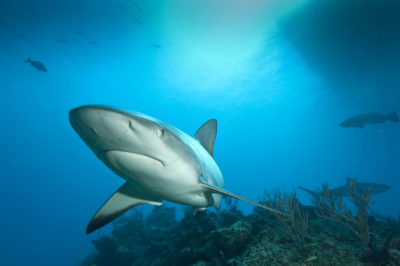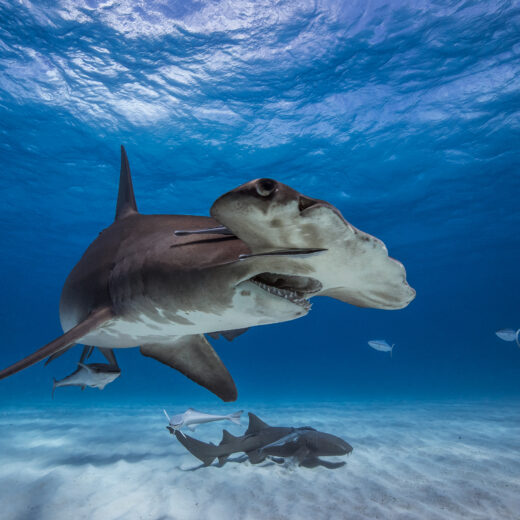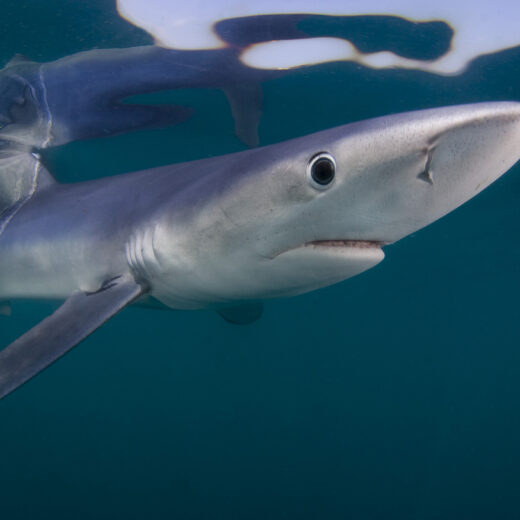
In China, the Government Offices Administration of the State Council has reportedly agreed to stop serving shark fin soup at official banquets, to take effect in the next 1-3 years. The administration was responding to a proposal submitted by 30 officials from the National People’s Congress, spearheaded by delegate Ding Liguo, who announced the news on his microblog on Friday, according to Global Times.
This monumental news comes at the peak of a massive public awareness campaign in China by conservation organization, WildAid, to “Say No to Shark Fin Soup”. In 2006, former NBA star and WildAid Ambassador Yao Ming famously committed to never eat shark fin soup again in a Public Service Announcement for WildAid, which has since been seen by hundreds of millions of people in China.
Peter Knights, Executive Director of WildAid, says, “With this public commitment, China has emerged as a leader in shark conservation and has the potential to stabilize shark populations and maintain the health of our oceans. A ban on all shark fin imports to China that cannot be clearly proven to be sustainably and humanely fished would be the logical next step to achieve this.”
Around the world, the movement to protect sharks has gained significant momentum in recent months. Just this week, Illinois become the fifth state in the U.S. (and the second largest) to pass a ban on the sale, trade, possession, and distribution of shark fin products, joining Hawaii, Washington, Oregon, and California.
In Canada, the first municipal shark fin ban in the country took effect this week in the city of Mississuaga. In total, ten municipalities to date, including Toronto, have successfully voted to ban the sale and consumption of shark fin products.
Back in November 2011, Peninsula Hotels, Asia’s oldest hotel company, announced they would stop serving shark fin across its portfolio of hotel restaurants and banquet operations. Shortly thereafter, Shangri-La Hotels and Resorts, which operates 72 luxury hotels worldwide, announced in January 2012 that it would no longer serve shark fins across its portfolio of properties.
Fins from up to 73 million sharks are used every year to make shark fin soup and related food products. Shark finning is a cruel and wasteful practice – captured at sea and hauled on deck, the sharks are often still alive while their fins are sliced off. Because shark meat is not considered as valuable as the fins, the maimed animals are tossed overboard to drown or bleed to death. The International Union for Conservation of Nature (IUCN) estimates that 1/3 of the world’s pelagic shark species are threatened with extinction, with certain species experiencing declines up to 99%.
With China’s rapidly expanding economy and burgeoning middle class, an increasing number of consumers can now afford shark fin soup, which had once been accessible to very few.
Stay in touch and get the latest WildAid updates.
SIGN UP


